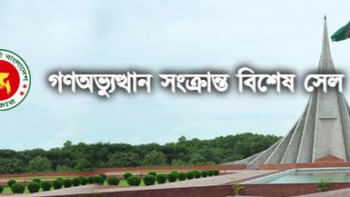Govt floats tender to lease out 25 jute mills

The government has floated an international tender to lease out 25 state-run jute mills for a period of five to 20 years even though industrialists seem uninterested on the short-term deals.
The tender, issued by Bangladesh Jute Mills Corporation (BJMC) on April 27, aims to encourage both domestic and foreign entrepreneurs to join the jute industry through an open bidding system.
"So, both international and domestic entrepreneurs will get the opportunity," BJMC Chairman Abdur Rouf told The Daily Star.
He also said they would give priority to foreign direct investment (FDI) in the leasing process.
The government closed all state-run jute mills on July 1 last year, prompted by heavy losses and excessive production costs, laying off more than 50,000 workers in three categories -- permanent, temporary and substitute.
When discussing the tender, Mohammed Mahbubur Rahman Patwari, chairman of Bangladesh Jute Mills Association, said although the tender system was a long process, he applauded the decision.
But the main challenge now is finding out what will be the investors' financing system.
"Whether the company who will take the lease will be able to finance the investment and how they will revamp the industry, these issues are not clear yet," he added.
Besides, a five-to-20-year leasing period is a very short term compared to long-term business strategies.
"If such a short-term lease is given, it will not be possible to make a profit by making a large investment here. This is another big problem," Patwari said.
As such, most companies will not be interested in the short-term investment.
"Before you invest somewhere, you must consider the potential profit. Now it remains to be seen how the government addresses these issues," he added.
However, Golam Dastagir Gazi, the minister for textiles and jute, said effective measures have already been taken to reopen the closed BJMC mills on a lease basis.
While addressing a virtual ministerial meeting yesterday, Gazi expressed hope that the jute sector's contribution to the economy would increase further due to the productivity and management strategies being implemented by private jute mills.
Regarding the laid off workers, the minister said they would get job opportunities on a priority basis at privately-run mills.
At the same time, this move will create new employment opportunities for able and skilled workers while all those who remain would be rehabilitated in phases.
The arrears and wages of workers of four of the shuttered jute mills -- Jatiya, Khalishpur, Daulatpur and KFD -- were paid in August last year.
For those among 34,657 workers who are individually owed over Tk two lakh in dues, the ministry will pay half in cash while rest will be paid through profit-based savings certificates on a half-quarterly basis.
Gazi went on to say that they had received Tk 1,69.41 crore from the finance ministry to pay the cash portion to the workers of all 21 mills.
Till date, Tk 1662.17 crore has been paid to the bank accounts of 31,656 workers, which is about 93.94 per cent of the allocation, it said.
BJMC Chairman Rouf further said they have already paid 97 per cent of the worker' dues.
However, payments to the rest of the workers have been delayed by problems over litigation, audit objections, mismatch of NIDs, and non-availability of bank accounts of the workers.
"All necessary steps are being taken to resolve the issue," he added.


 For all latest news, follow The Daily Star's Google News channel.
For all latest news, follow The Daily Star's Google News channel. 



Comments